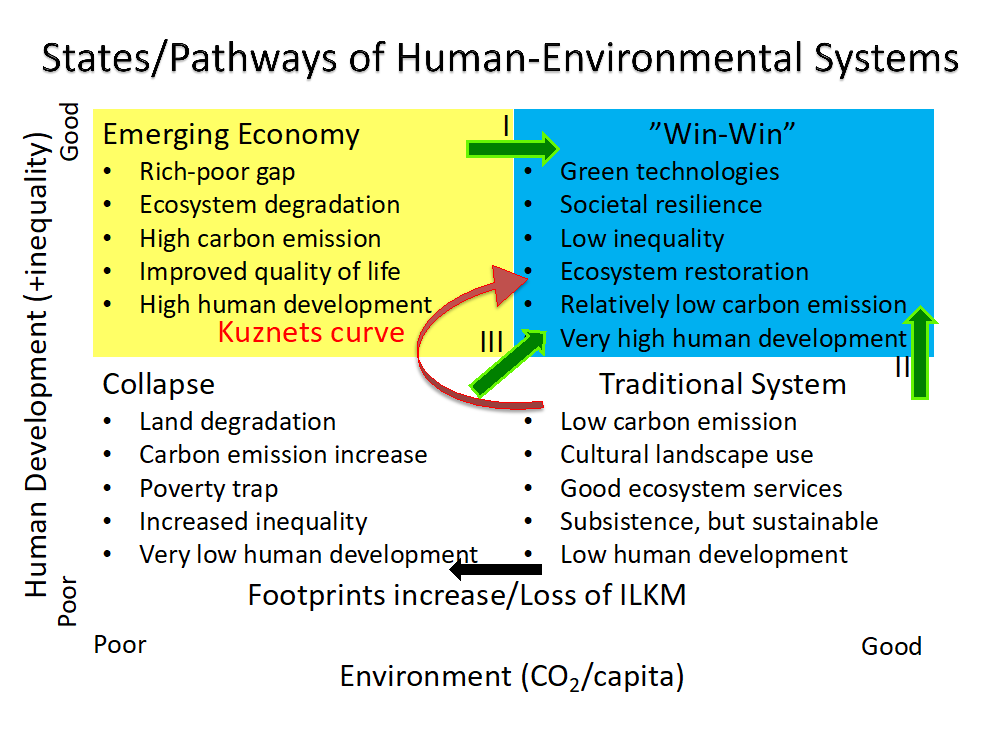The 184th RIHN seminar
| Date: | January 6th, 2021 (Wednesday) 13:30 - 15:00 |
| Place: | Seminar Room 3 & 4, RIHN ( → Access) / Remote (zoom) |
| Title: | "Human-Environmental System: From local to Global Sustainability" |
| Lecturer: | Chuluun Togtokh(Invited Scholar/Director/Institute for Sustainable Development, National University of Mongolia)
About 2 decades ago, the Global Land Project began to study the land system as a coupled human-environmental system. At that time I was working as a Research Scientist at the Natural Resource Ecology Laboratory of the Colorado State University in partnership with Dennis Ojima, who co-chaired the Global Land Project at its early stage. My research interest shifted from ecosystem to coupled human-environmental system studies. After coming back to Mongolia in 2002, I focused on pastoral social-ecological system studies at community level and sustainable development at national scales. I summarized states of herders and communities in the diagram from human and ecosystem states points of view. There were four states and transitions between them: desirable and undesirable development pathways. Pathways towards “Win-Win” socially and ecologically were the most desirable ones. This model guided my research at national and global scales too. I observed that the HDI was lacking any environmental dimension to be sustainable development index when I was asked to write background paper on land degradation for the HDR by the Government of Mongolia. I proposed to include carbon dioxide emission per capita as an environmental index into the HDI, making it as the Human Sustainable Development Index (HSDI). The “Nature” published by article in 2011, probable it had implications for both sustainable development and climate change. The same diagram on human and environmental dimensions helped me to propose this important idea from “Win-Win” for human development and environment, also tackling the climate change issue. I proposed green development pathways towards “Win-Win” state to become as the scientific framework for the Green Development Policy 2030, which was adopted to the parliament of Mongolia in 2014. Current undesirable development trend in Mongolia towards Collapse or “Lose-Lose” was a warning signal for unsustainable development pathway for Mongolia. This scientific framework also included carbon intensive or low carbon development alternatives, applying the HSDI implication. 
Finally, I would like to discuss have my future research interests on local, national and global sustainability, seeking potential joint collaboration:
|
Language: | English |
| Abstract (Summary): | This seminar first reviews the Human Sustainable Development Index (HSDI) developed by the speaker by including carbon dioxide emissions per capita as an environmental index into the HDI, published in Nature in 2011. Based on this, the speaker proposed green development pathways towards “Win-Win” state to become as the scientific framework for the Green Development Policy 2030, which was adopted to the parliament of Mongolia in 2014. The presentation will conclude by discussing the following future research interests: |
| Contact: | International Affairs Subsection: KYUDA  |
|---|

